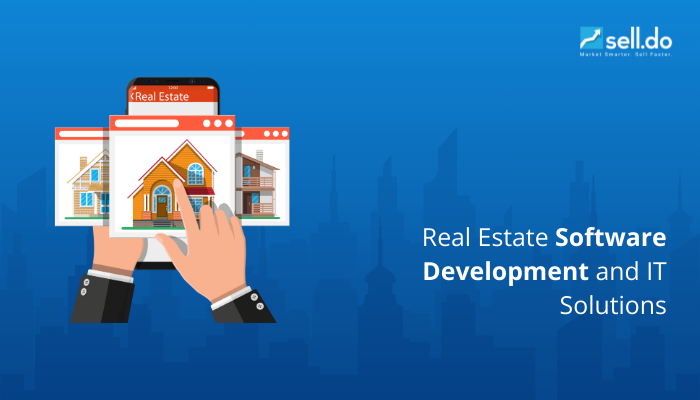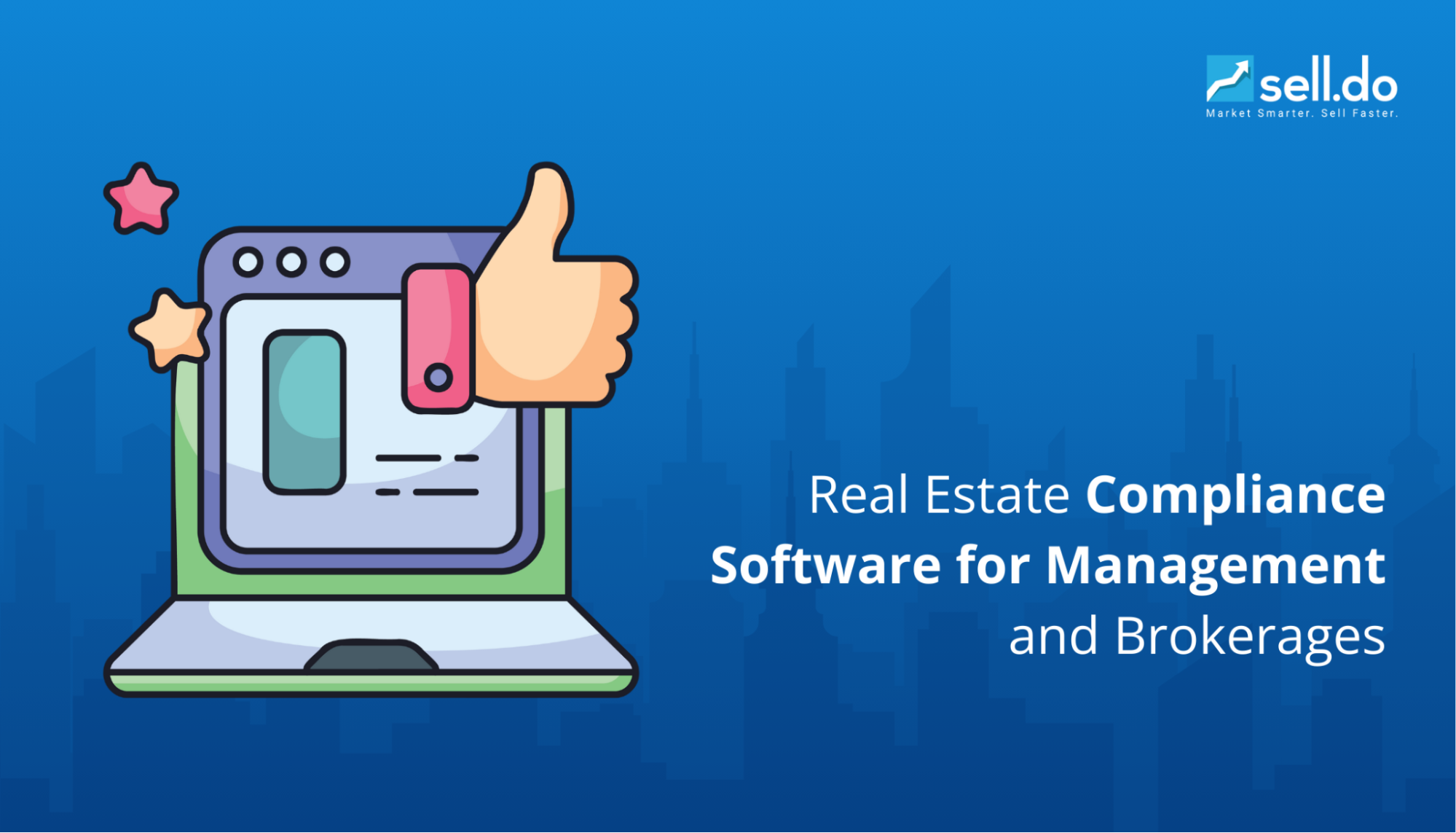Leads come in every day, but without a proper system, follow-ups get delayed, and potential deals slip away. That’s why businesses using a CRM see conversion rates increase by up to 300%—having the right tools in place makes all the difference.
For real estate brokers, a top broker CRM helps manage inquiries, automate follow-ups, and keep every lead in check. Instead of juggling spreadsheets and missed calls, you get a structured approach to turning prospects into clients.
Let’s break down why a CRM isn’t just useful—it’s essential for closing more deals and growing your brokerage.
Importance of CRM Software for Real Estate Brokers

A CRM system centralizes data and automates operations, allowing you to stay organized and focused on developing client connections and, eventually, closing more deals.
Here’s why CRM software is essential for real estate brokers:
- Centralization of Customer Data: Keeping all client details, property preferences, and communication history in one place ensures quick access to critical information, helping brokers provide better service.
- Optimizing Broker Workflows: A CRM organizes tasks, schedules follow-ups, and tracks deal progress, reducing manual work and keeping brokers focused on closing sales.
- Enhancing Client Retention and Communication: Automated reminders and follow-up tools help maintain relationships with past clients, increasing repeat business and referrals.
- Enabling Personalized Client Communication: With detailed client insights, brokers can send tailored messages, property suggestions, and updates that align with individual preferences.
- Leveraging Data-Driven Insights for Business Performance: CRM analytics provide valuable insights into lead sources, conversion rates, and sales trends, helping brokers refine their strategies for better results.
- Automating Administrative Tasks: From sending emails to updating property listings, automation reduces repetitive work, allowing brokers to focus on high-value interactions.
Now that we've covered the importance of CRM software for real estate brokers, let's explore the key features that make these systems essential for success.
Also, read our blog, Choosing the Right CRM for Construction: A Simple Guide.
Key Features of CRM Software for Real Estate Brokers

When choosing a CRM, it’s important to identify features that go beyond generic systems. A dedicated real estate CRM is designed to handle industry-specific tasks like lead management, property tracking, and broker collaboration. Here are the key features to look for:
- Contact Management and Deal Tracking: Organizes client information, tracks interactions, and manages deals throughout the sales pipeline for better follow-ups and conversions.
- Integration with Communication and Marketing Tools: Connects with channels like WhatsApp, email, and property portals, making it easier to manage campaigns and client communications from one platform.
- Analytics and Reporting for Decision-Making: Provides insights into sales performance, lead sources, and agent activities to support data-driven decisions.
- Lead Capture and Nurturing: Automates lead capture from property portals and marketing campaigns, followed by personalized nurturing to improve conversion rates.
- Inventory and Property Management: Tracks property availability, pricing, and site visits in real-time, helping brokers manage listings efficiently.
- Task and Activity Management: Automates reminders, follow-ups, and task assignments to ensure timely actions and prevent missed opportunities.
- Broker and Channel Partner Management: Simplifies collaboration with channel partners, allowing brokers to monitor performance, manage payouts, and strengthen relationships.
Next, it’s time to explore the list of best real estate CRM to find the perfect fit for your business.
If you need more innovative strategies to generate leads, check our blog, Social Media Marketing Strategies for Real Estate Agents.
Top 6 Broker CRM

Here’s our curated list of the Top 6 Broker CRMs to help you manage leads and enhance client relationships.
Sell.Do - Dedicated CRM for Real Estate

Rating: 4.8/5
Sell.Do is a top broker CRM built specifically for the real estate industry, offering tailored solutions to manage leads, track site visits, and optimize sales pipelines. Its unique strength lies in automating the entire sales process, from lead capture to closing deals, making it an ideal choice for brokers seeking efficiency. With advanced reporting and integration capabilities, it ensures data-driven decision-making and improved client engagement.
Key Features of Sell.Do
- Automated Lead Nurturing: Seamlessly manages follow-ups to ensure no lead goes cold.
- Real-Time Inventory Management: Keeps property listings updated for accurate availability tracking.
- Omnichannel Communication: Integrates with WhatsApp, emails, and calls for consistent client interactions.
- Advanced Analytics: Provides detailed insights into sales performance and lead conversions.
Pricing: Custom
Paramantra CRM

Google Reviews Rating: 4.2/5
Paramantra is designed to empower real estate brokers with intelligent automation and a focus on enhancing customer relationships. This top broker CRM stands out for its AI-driven features that predict customer behavior and suggest personalized follow-up strategies. It’s particularly effective for brokers handling large volumes of leads and complex sales cycles.
Key Features of Paramantra CRM
- AI-Based Lead Scoring: Prioritizes leads based on engagement and conversion potential.
- Customizable Sales Pipelines: Adapts workflows to suit specific brokerage processes.
- Integrated Communication Suite: Unifies calls, SMS, and emails within the CRM.
- Performance Tracking Dashboard: Monitors agent productivity and sales metrics in real time.
Pricing: Personalized
Salesforce

Rating: 4.5/5
Salesforce is a globally recognized CRM platform with robust customization options, making it adaptable for real estate brokers. While not real estate-specific, its flexibility allows brokers to create tailored workflows. Its strength lies in extensive integration capabilities and powerful analytics, positioning it as a top broker CRM for tech-savvy firms.
Key Features of Salesforce
- Custom Workflow Automation: Automates repetitive tasks for increased efficiency.
- Advanced Reporting Tools: Offers in-depth data analysis for informed decision-making.
- Cloud-Based Accessibility: Enables brokers to manage operations from anywhere.
- Lead and Opportunity Management: Tracks the entire client journey seamlessly.
Pricing: Custom
In4Velocity

Rating: 4/5
In4Velocity is tailored for real estate developers and brokers, focusing on end-to-end property sales and asset management. Its unique feature is the integration of property management and CRM functionalities, making it a comprehensive solution for firms managing multiple projects. This makes it a top broker CRM for those needing both sales and property oversight.
Key Features of In4Velocity
- End-to-End Sales Automation: Manages the entire sales cycle from inquiry to closure.
- Project and Asset Management: Tracks project progress alongside sales activities.
- Financial Management Tools: Integrates with accounting systems for payment tracking.
- Document Automation: Simplifies the generation of contracts and agreements.
Pricing: Customized
Need attention-grabbing taglines for your campaigns? Check our blog, Tips for Writing Catchy Taglines for Real Estate Developers.
RSoft

Rating: 5/5
RSoft is designed to streamline lead management and boost sales productivity for real estate brokers. It stands out as a top broker CRM for its intuitive interface and easy customization, allowing brokers to tailor the platform to their unique workflows. Its quick setup and user-friendly design make it suitable for small to mid-sized brokerages.
Key Features of RSoft
- Lead Distribution Engine: Automatically assigns leads to the right agents based on predefined rules.
- Sales Funnel Visualization: Offers a clear view of the sales pipeline for better tracking.
- Mobile App Support: Enables brokers to manage leads and tasks on the go.
- Follow-Up Reminders: Ensures timely communication with prospects.
Pricing: Custom
Tranquil CRM

Rating: 4.5/5
Tranquil CRM is tailored for real estate professionals looking to simplify client management and improve conversion rates. Its standout feature is its simplicity combined with robust tools for lead tracking and customer engagement. Recognized as a top broker CRM, it’s ideal for brokers seeking efficiency without complex configurations.
Key Features of Tranquil CRM
- Centralized Lead Database: Consolidates all lead information for easy access and management.
- Automated Follow-Ups: Reduces manual effort by scheduling follow-up tasks automatically.
- Email Campaign Management: Facilitates targeted marketing campaigns directly from the CRM.
- Client Interaction History: Tracks all communications for personalized client engagement.
These CRMs offer unique strengths to support brokers in managing their leads, improving client relationships, and boosting sales productivity.
Tips for Implementing CRM Software Successfully

Successfully implementing CRM software in a real estate business goes beyond just installing the system. It requires planning, training, and a solid strategy to ensure the CRM adds value and improves operations. Here’s a guide to getting it right:
- Defining Objectives for CRM Implementation
Establish clear goals for what the CRM should achieve, like improving lead conversion or enhancing client communication. - Data Migration and User Training: Ensure smooth data transfer from old systems and provide comprehensive training to your team on CRM features and workflows.
- Overcoming Resistance and Ensuring Adoption: Address any reluctance from your team by demonstrating the CRM's benefits and involving them in the process.
- Best Practices Including Data Cleanup and Task Automation: Clean up outdated data before migrating it and use automation features to reduce manual tasks and save time.
- Encouraging Team Collaboration and Continuous Learning: Foster a collaborative environment where team members share insights and continuously improve their CRM usage.
- Defining KPIs for Success Measurement: Set specific key performance indicators (KPIs) like lead response time and conversion rates to track CRM success.
By focusing on these key areas, you can maximize your CRM’s effectiveness and take your real estate business to the next level. However, we suggest choosing a CRM that caters to the needs of the real estate industry. This is why we recommend implementing Sell.do. Here’s why Sell.do can be a better option:
Why Choose Sell.Do?
A CRM can significantly improve real estate development and sales by streamlining operations, enhancing communication, and providing valuable insights. It helps developers manage leads, track projects, and ensure on-time delivery, all while fostering team collaboration. However, many generic CRMs lack the specialized tools needed for the real estate industry, leading to inefficiencies.
Sell.Do is tailored for real estate developers, offering tools to manage the entire pipeline, access detailed reports, and stay ahead of market trends. It helps improve team collaboration, reduce administrative tasks, and boost customer engagement, ultimately increasing efficiency and conversion rates.
To see how Sell.Do can make a difference, check out our case studies here.
Conclusion
CRM software plays a pivotal role in optimizing brokerage operations, offering brokers the tools to stay organized, manage leads efficiently, and improve client communication. A well-chosen CRM can transform how you handle day-to-day tasks, ultimately helping close more deals and grow your business.
This is why we recommend choosing Sell.Do over generic CRM. It is an excellent choice for real estate brokers, offering a CRM solution tailored specifically for the real estate industry. With its powerful features, Sell.Do simplifies lead management, automates tasks, and improves overall productivity.
Connect with us for a demo today and see how Sell.do can transform your business.






Leave a comment
Comments (0)
Be the first one to comment.